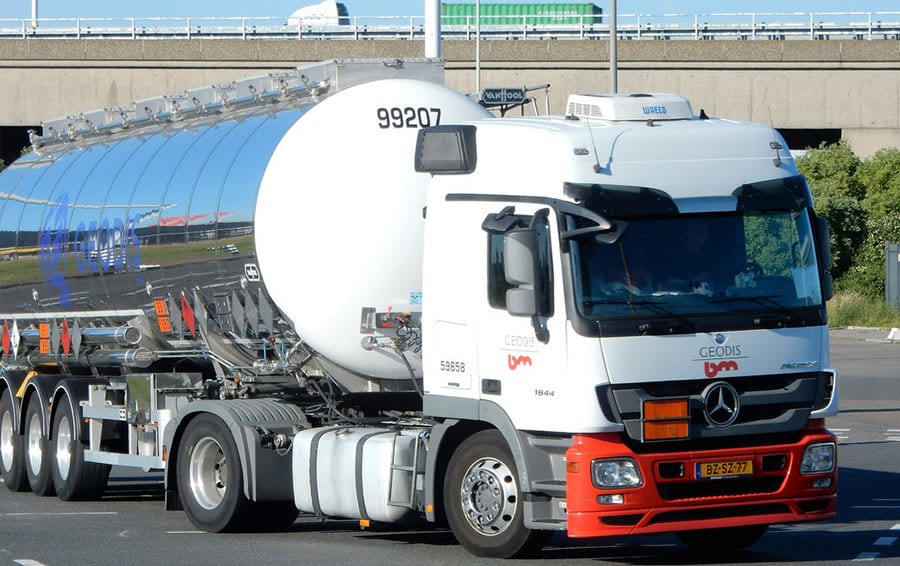Employers and training providers across the UK need to bring their ADR training materials up to date, in line with recent revisions to the ADR (Carriage of Dangerous Goods) training syllabus.
To help businesses keep compliant RTITB has launched new and updated ADR training materials that are SQA (Scottish Qualifications Authority) approved.
“Safety and legal compliance are vital in any working environment. Especially for the transportation of hazardous goods. It affects LGV/HGV drivers, other road users, and the wider general public.” says Sarah Brown, Driver CPC and ADR Manager for RTITB, accrediting body for workplace transport training.
“Available via the RTITB Dangerous Goods Training Consortium, the new and updated training materials, enable businesses to deliver training that is up to date with legislation and accepted industry standards. They don’t have to spend the time and resource re-developing their own materials and getting them SQA approved.”
Dangerous goods are assigned different classes ranging from Core, Packages, Bulk and Tanks. The classes cover goods from the highly dangerous, such as explosives, flammables, and fuming acids, to everyday products such as paints, solvents and pesticides.
Updated in line with current dangerous goods syllabus, and legislation, the RTITB ADR training materials give employers and training providers the resources and support they need.
They cover Core, Packages and/or Bulk, Classes 2, 3, 4, 5, 6, 8 and 9, Tanks and specialist modules. Brand new Class 1 and Class 7 courses have also been developed, along with a new Driver Handbook.
“The Driver Handbook has been designed with the driver in mind,” explains Sarah. “It is a handy go-to reference guide. It reminds drivers of the rules and regulations they need to know and follow. To ensure it supports instructors in the training room, and safety for drivers in their day-to-day roles, it must be accessible and usable.”
The Driver Handbook has been researched and rewritten from scratch. It uses clear, no-nonsense language, and is set out according to an easy-to-use, logical structure. References are given to the specific chapters and subsections of dangerous goods so that drivers know exactly where to look for further information when they need it.
The RTITB ADR Dangerous Goods Trainers’ Guide, supplied on a USB, has been specifically designed to allow appropriately qualified Instructors to conduct carriage of dangerous goods training.
It is based on accepted industry standards, in line with The European Agreement Concerning the International Carriage of Dangerous Goods by Road (ADR), Carriage of Dangerous Goods and Use of Transportable Pressure Equipment Regulations (CDG) 2009, and the Health and Safety at Work Act etc. 1974.
The Trainers’ Guide USB includes an Instructor Guide PDF, including a library of different sessions and practical exercises. It also includes a PowerPoint slide deck, and supporting documents, alongside the Driver Handbook.
“Many organisations don’t realise that in addition to the training materials being approved by SQA, training providers that run ADR training courses for drivers, must also be approved, by the Department for Transport (via SQA)” says Sarah.
Organisations delivering ADR training can be SQA approved in their own right. However, they can further reduce costs by becoming Dangerous Goods Training Consortium members, which includes SQA approval.
The RTITB Dangerous Goods Training Consortium was launched in 2019. It helps businesses to save money and time. For instance, membership to the consortium grants access to all the SQA approved, up-to-date training materials. This removes the time and costs associated with developing their own materials and getting them SQA approved.
Members of the consortium are given annual audits. This ensures compliance and safety standards are being met. A new SQA quality assurance process has also been introduced.
This process will see checks on training database records (for those offering ADR training and external verifiers), conducted by SQA. RTITB Auditors and SQA Verifiers will be checking that the new versions of ADR Training materials are being used.
“Member organisations that are training providers also find that association with the RTITB brand gives confidence to their customers. It shows that they take obligations to deliver great training for them seriously,” Sarah Brown adds.
For more information about joining the ADR Consortium and to find the latest ADR training materials, visit www.rtitb.com.






